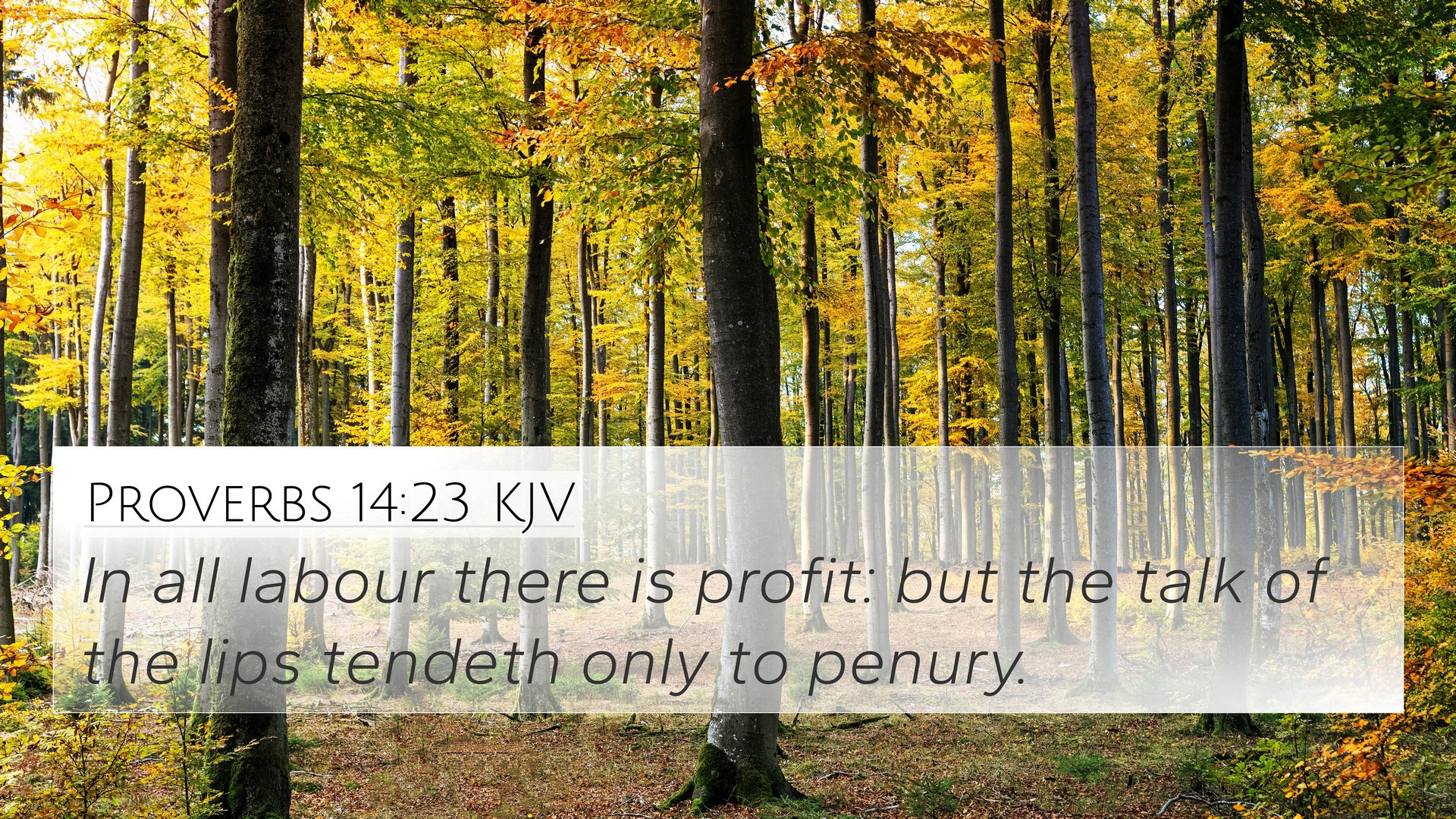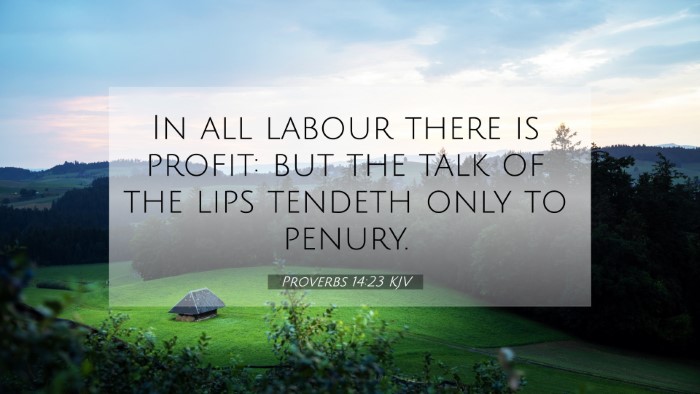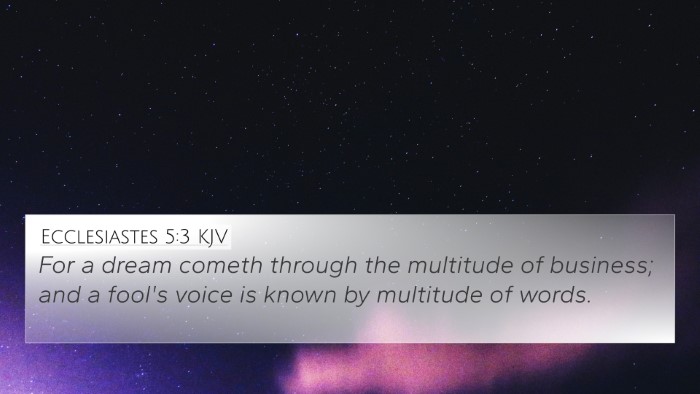Understanding Proverbs 14:23
Proverbs 14:23 states: "In all labor there is profit: but the talk of the lips tendeth only to penury." This verse highlights the value of hard work and the futility of mere talk without action. In the following sections, we will explore various commentaries and insights related to this verse, drawing on the contributions of esteemed theologians.
Verse Meaning Overview
This verse reflects a common theme in the Book of Proverbs, emphasizing that meaningful work leads to tangible rewards, while idle chatter can result in poverty. It serves as a reminder of the importance of diligence and actionable efforts in daily life.
Commentary Insights
Matthew Henry's Commentary
Matthew Henry notes that the emphasis is on the significance of labor and action. He explains that profit comes from both physical and mental work, and that successful outcomes require commitment and perseverance. The contrast he draws between profit from labor and the "talk of the lips" points to the emptiness of words without accompanying deeds.
Albert Barnes' Commentary
Albert Barnes elaborates on the idea that not all labor results in monetary reward, yet all labor has its worth in contributing to personal development and spiritual growth. He warns that without action, words alone can lead to insignificance and lack of achievement. Barnes encourages the practical application of faith through diligent labor.
Adam Clarke's Commentary
Adam Clarke emphasizes that labor signifies both physical work and the pursuit of wisdom. He interprets "the talk of the lips" as representing empty words, suggesting that many people engage in idle discussions rather than focusing on productive work. Clarke asserts that one must engage in meaningful actions to see true fulfillment and success.
Cross-References for Deeper Understanding
To enhance our understanding of Proverbs 14:23, here are several related Bible verses that provide additional insights:
- Proverbs 10:4: "He becomes poor that deals with a slack hand: but the hand of the diligent makes rich."
- Proverbs 12:11: "He that tilleth his land shall be satisfied with bread: but he that follows vain persons is void of understanding."
- Proverbs 21:5: "The thoughts of the diligent tend only to plenteousness; but of every one that is hasty only to want."
- Ecclesiastes 9:10: "Whatsoever thy hand findeth to do, do it with thy might; for in the grave, whither thou goest, there is neither working, nor planning, nor knowledge, nor wisdom."
- James 1:22: "But be ye doers of the word, and not hearers only, deceiving your own selves."
- 1 Thessalonians 4:11: "And that ye study to be quiet, and to do your own business, and to work with your own hands, as we commanded you."
- Galatians 6:7: "Be not deceived; God is not mocked: for whatsoever a man soweth, that shall he also reap."
Thematic Connections
Proverbs 14:23 connects deeply with several overarching themes in the Bible:
- Work Ethic: Many verses highlight the significance of hard work, aligning with the teachings found in Proverbs.
- Faith and Action: The relationship between faith and active engagement is underscored in New Testament scriptures.
- Consequences of Idleness: Scripture often warns against complacency and the distractions of idle speech.
Practical Applications
Understanding Proverbs 14:23 encourages individuals to:
- Embrace Hard Work: Recognize the value of putting effort into tasks and responsibilities.
- Prioritize Actions Over Words: Focus on practical steps rather than merely discussing goals.
- Integrate Faith and Labor: Understand that spiritual and physical labor can coexist and should enhance one another.
Conclusion
Proverbs 14:23 provides a powerful lesson on the necessity of labor in achieving success and the emptiness of without action. By cross-referencing with related biblical texts, we gain deeper insight into the scriptural importance of diligence. Striving to embody these teachings can lead to both spiritual and material fulfillment.










